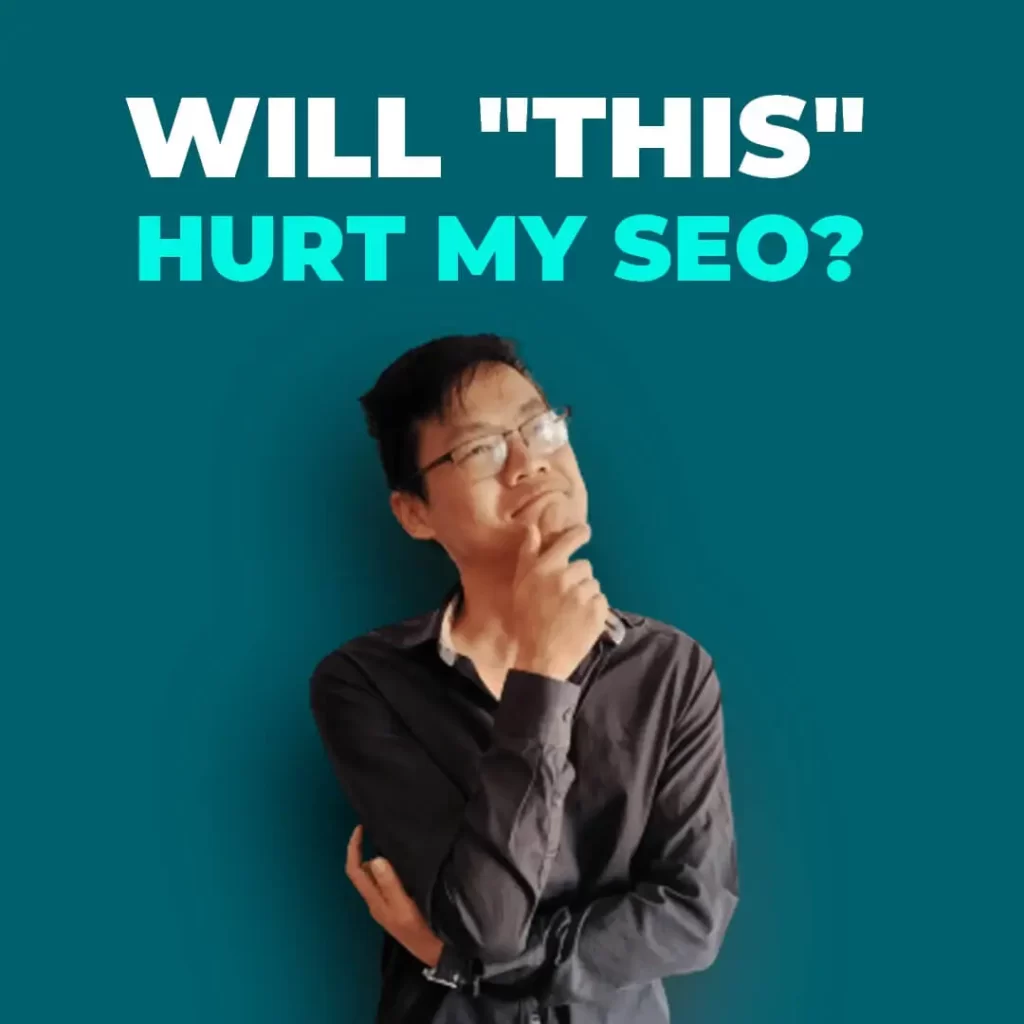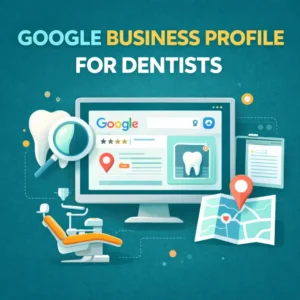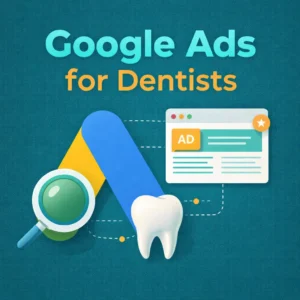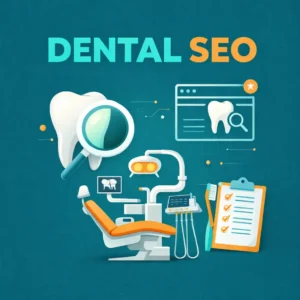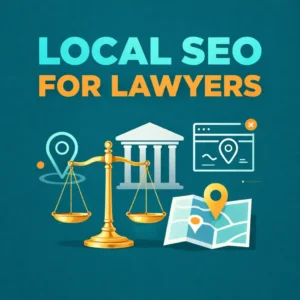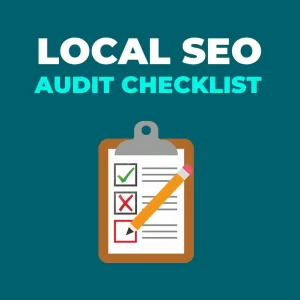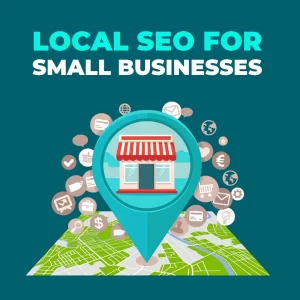Search engine optimization (SEO) can feel like a minefield, especially if you’re not an expert. One wrong move, and your rankings might plummet! If you’ve ever asked, “Will this hurt my SEO?” before making a decision about your website, this article is for you.
Below is a long checklist of common SEO concerns that business owners have. Each question helps determine whether a specific action is harmful, neutral, or helpful for SEO.
Part 1: Technical & Structural SEO Decisions
1. Does Changing My Domain Name Hurt My SEO?
Answer: Yes, it can (if not handled properly)
Why? Changing a domain without proper redirects can cause traffic and ranking losses. If necessary, implement 301 redirects from old pages to their equivalent new URLs.
2. Should I Use a Subdomain Instead of a Subfolder for SEO?
Answer: ⚠️ It depends on the situation.
- Scenario 1: You’re launching a blog for your existing site – A subfolder (
example.com/blog/) is usually better because it consolidates domain authority and ranking power. - Scenario 2: You’re creating a separate service, product, or regional version – A subdomain (
shop.example.comoruk.example.com) makes sense if the content is distinct and may need different SEO strategies. - Scenario 3: You want to target different languages – A subdomain (
fr.example.com) or a country-specific domain (example.fr) could work, but a subfolder (example.com/fr/) is often better for consolidating SEO.
Overall: Google can treat subdomains as separate sites, requiring separate SEO efforts. If possible, use subfolders unless you have a strong reason to separate content into a subdomain.
3. Does Moving to a New Website Platform Affect My SEO?
Answer: Yes, it can if done incorrectly
Why? Migrating platforms can break links, change URL structures, or lose metadata. Use a structured migration plan with proper 301 redirects and metadata preservation.
4. Will Deleting or Changing URLs Without Redirects Harm My SEO?
Answer: Yes, it’s harmful to SEO.
Why? Removing pages or changing URLs without 301 redirects can lead to broken links (404 errors) and lost rankings. Always redirect old pages to relevant new pages.
6. Can a Slow Hosting Provider Hurt My SEO Rankings?
Answer: Yes, it impacts SEO
Why? Site speed is a ranking factor. Slow sites lead to poor user experience and lower rankings. Invest in fast hosting.
7. Can Blocking Search Engines via Robots.txt Negatively Impact My SEO?
Answer: Yes, it negatively impacts SEO
Why? If you accidentally block Googlebot from crawling your site, your pages won’t appear in search results. Check your robots.txt settings carefully.
8. Does Using JavaScript for Important Content Impact SEO?
Answer: Maybe
Why? Google can crawl JavaScript, but it’s not as reliable as plain HTML. Ensure essential content is accessible in the page’s source code.
9. Does Not Having a Mobile-Friendly Website Hurt SEO?
Answer: Yes, it hurts SEO
Why? Google prioritizes mobile-friendly sites. Use responsive design to ensure proper display on all devices.
Part 2: Content, Links & On-Page SEO Decisions
10. Does Using AI-Generated Content Without Editing Harm SEO?
Answer: Possibly
Why? Google discourages low-quality AI-generated content. Always edit AI-written articles to ensure readability, originality, and proper SEO structure.
11. Will Not Using Keywords in My Content Hurt SEO?
Answer: Yes, it does hurt SEO
Why? Keywords help Google understand what your page is about. Use them naturally in headings, titles, and throughout your content.
12. Does Keyword Stuffing Negatively Impact My SEO?
Answer: Yes
Why? Overloading a page with keywords makes content unreadable and can trigger penalties. Keep it natural and user-friendly.
13. Does Writing Short, Thin Content (<300 Words Per Page) Hurt SEO?
Answer: Yes, in most cases
Why? Google prefers in-depth (1500 – 2000 words), valuable content, quality over quantity. Thin content doesn’t rank well unless it serves a clear user intent (e.g., contact pages).
14. Will Not Optimizing Title Tags & Meta Descriptions Affect SEO?
Answer: Yes, it hurts SEO
Why? These elements impact click-through rates. If they’re missing or generic, you may lose valuable traffic.
15. Does Buying Links to Improve Rankings Hurt SEO?
Answer: Yes, it could benefit short-term and hurt long-term.
Why? Google penalizes link schemes. Instead, focus on earning high-quality backlinks naturally through great content.
16. Can Not Using Internal Links in My Content Affect SEO?
Answer: Yes, it can affect SEO
Why? Internal links help distribute link equity and improve site navigation. Always link to relevant internal pages.
17. Do Broken Links on My Website Negatively Impact SEO?
Answer: Yes, they harm SEO
Why? Broken links harm user experience and SEO. Use tools like Google Search Console to find and fix them.
18. Will Using Too Many Ads on My Website Hurt SEO?
Answer: Yes, if excessive
Why? Google penalizes sites that prioritize ads over content, especially with intrusive pop-ups.
19. Does Not Having an Active Blog or Content Strategy Affect SEO?
Answer: Yes, either in missed opportunities to rank for more keywords or wasted SEO efforts / resources if done randomly, once in a while.
Why? Regularly updated content signals relevance to Google. Without fresh content, your rankings may stagnate.
20. Does Having Duplicate Content on My Site Harm SEO?
Answer: Yes, it can harm SEO
Why? Google may penalize sites with duplicate content. Use canonical tags (rel=canonical) to indicate the preferred version of a page. Additionally, content cannibalization can occur when multiple pages target the same keywords, leading to confusion for search engines and reduced rankings.To avoid this, consolidate similar content or differentiate pages clearly.
21. Does Google Business Profile or Maps Impact My SEO Rankings?
Answer: Yes, it has a significant impact for local business owners.
Why? Google Business Profile (formerly Google My Business) is a key factor for local search rankings. Having a well-optimized profile with accurate business details, quality images, consistent NAP (Name, Address, Phone Number), and positive reviews can greatly improve your local visibility.
Additionally, appearing in Google Maps can drive more local traffic to your website and business. Ignoring this can result in missed opportunities to rank for location-based searches.
Final Thoughts: Making the Right SEO Decisions
SEO doesn’t have to be overwhelming. By using this checklist, you can make informed decisions and avoid common mistakes that could harm your rankings.
If you’re unsure about any of these, consult with an SEO expert before making major changes. A small mistake can cost you months of lost traffic!
Need personalized SEO advice? Let’s chat and make sure your business grows online without any missteps.

